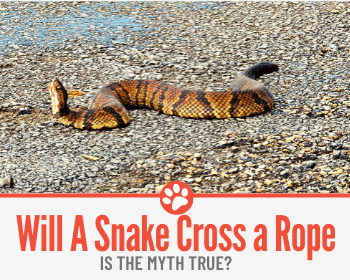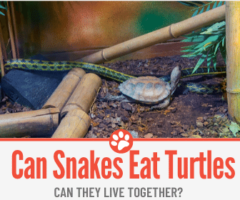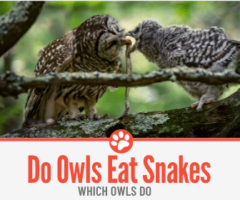 As a camping and animal lover, I was wondering if the myth about snakes and ropes it’s true.
As a camping and animal lover, I was wondering if the myth about snakes and ropes it’s true.
That’s why, I investigate in-depth to know what kind of ropes would drive snakes away and why.
Will a Snake Cross a Rope?
You have a very slim chance that the snake would not cross a rope if it really wanted to cross it, The myth isn’t entirely true! Most species of snakes will cross ropes.
Some experiments have implied that snakes will not cross ropes, but the reality is that they can. Some types of ropes will act as a repellent for certain snakes, given that they could believe it is another snake or also, they could hurt their belly by the rope material,.
Let’s see what Kind of Rope Might Keep a snake away in this article.
If you really want to be sure snakes won’t get close to your tent or house, you may have to find something more significant like a chemical repellent.
But it is simple: If the snake doesn’t have a reason to cross the rope, it will not. Now, if the rope is on the way to something the snake wants, a rope may not stop her.
How does a Rope Protect from Snakes?
As mentioned above, ropes might protect you from snakes; two main reasons will cause a snake not to cross a rope. The first one is that they may confuse the rope with another serpent. The second reason, is that some rope materials could cause harm to snakes belly.
The primary function of putting a rope around your sleeping bag, tent or in the yard of your house is creating an obstacle.
This obstacle means more work and effort for any snake. The most likely scenario is that snakes don’t want anything from you, in fact, they want to be as far as possible because they see you as a threat.
The snakes possess the ability to cross ropes if they want to. As predators, they will chase any prey to satisfy their hunger. If the victim is on the other side of the string, they will do their best to catch it.
Does a rope really keep snakes away?
Ropes do not give you a hundred percent guarantee to keep snakes away. The myth exists because it has worked according to different testimonies of peoples that have tried this theory. But the truth is the rope itself is not a sufficient implement to get rid of all the possible snakes outside.
The rope trick was used primarily by campers, assuming that placing one on the ground could deflect the path of the snake.
Also, traditionally many people left a rope near the front door of the house so snakes would not enter and stay away.
They believed these animals upon encountering the obstacle after crawling on a smooth path would have no choice to swerve to another route.
But the truth is, snakes won’t go to any place that they feel threatened. Ropes create an impediment in the path of snakes. The safest choice for them is changing their way and avoid any risk.
Braided rope
Snakes are capable of crossing a braided rope if they desire. If, after the rope, there’s something that awakens the animal instinct or wants to keep going, this type of rope is not a guarantee.
Some people say a braided rope will make snakes believe that it is another snake and this could be possible. On the other hand, you can’t fool these reptiles so easily.
They’re intelligent animals with powerful senses.
Like the majority of animals, they avoid threats; they don’t want to feel fear or expose themselves to real risk. This is why it is possible snakes won’t cross the rope if they sense something wrong.
It could be possible that braided ropes generate the illusion of another snake, which could help you keep those reptiles away.
Threaded rope
Snakes may avoid crossing a threaded rope not because they don’t possess the skills it is just because they don’t want to expose themselves to any hazard. Snakes are not afraid of ropes; most of them can crawl over them without much effort. So if ropes don’t scare snakes, why some of them won’t cross them?
The answer is simple: they are scared of you! They know what the real threat is. If the rope would be lying in nature, snakes will cross it like they crawl many superficies. Snakes aren’t frightened of anything they know can’t kill them.
A threaded rope will increases the chances of snakes staying away from you, given that it is an obstacle. But above all, it is because it is near to you and they relate humans with danger.
Snakes may doubt what the rope is; in the first view, they could think it is another snake or that it is risky that they prefer avoiding. As long as you’re close, they would do anything to be far.
Hemp rope
Snakes can cross a hemp rope as the other types of rope we have mentioned. In this video, you can see how different species of snakes cross a hemp rope easily. At first, the reptiles seem to be a bit indecisive about crossing the string or not.
The hesitation it has nothing to do with whether they can pass through or not, is more about why I’ll cross it? There is something on the other side worth it? After the snakes analyze the area, smell the rope, and feel safe, they all cross without any inconvenience.
Why people still believe a hemp rope serves a snake repellent? In different experiments, you can see how some snakes will cross the rope right away, while others will rather avoid it.
It’s like us, you may prefer walking barefoot on the floor of your house, but you might prevent lawn because you don’t like the sensation.
Snakes are incredible creators that can crawl over infinite obstacles. Of course, there are surfaces easier than others.
Horse hair rope
Many people claim that ropes with horse hair are sufficient to keep snakes away. You may be wondering why. T
he answer given by those who believe in this theory is that snakes are not able to cross this type of rope because when they feel the horse hairs on their belly, it will generate an uncomfortable sensation and drive them away.
Although it is a fact that a horse rope is uncomfortable for them, it’s not an ultimate repeller. Snakes can cross a rope of horse hair just as they can cross the others.
You must know, snakes are prepared to crawl over harder things, like cactus and rough rocks, among others. Their skin is firm and developed to face all the barriers they face in nature.
Between all the ropes, a horse hair rope could be the most effective. Why? Because it has the most unpleasant material for snakes. If there is a smoother path, don’t doubt they will choose it!

Will a rope around the sleeping bag protect you from snakes?
The myth says that cowboys affirmed that putting a rope around your sleeping bag will protect you from snakes. But at this point, we know that they have the ability to cross them. So why wouldn’t? It is simple. They don’t have any interest in sleeping with you!
Ropes are not a threat for snakes, you are. If you’re sleeping next to rodents or insects, this will be the reason why a snake will approach you.
As long as you stay calm, and snakes don’t feel endangered by you, they won’t do anything to hurt you.
Snakes move by their instinct. They want to eat and survive. If you’re scared by them and don’t want to see one, there are some more effective products that you could get to prevent them from approaching you.
What will Snakes not cross?
If you want to keep snakes away, you already know a rope is not precisely the most effective method you can find. Although there are few things that a snake cannot cross, an excellent anti-snake fence works successfully.
These fences are mainly built with mesh and possess a high altitude making it a real obstacle for snakes to cross.
They are also buried deep in the earth, which enhances the difficulty for these vertebrates animals.
There are other things that snakes avoid like short grass. They evade this kind of surface because they feel exposed to other predators.
What to put down for snakes? (What actually Works?)
If you want to ward snakes off effectively, you can choose to make chemical repellents. Serpents are more tend to avoid some smells.
You can mix sulfur with mothballs and red pepper. You can place this mix around your garden or any areas you want to keep protected.
Another option for an effective repellent is to blend ammonia with lemon detergent. You can spray this mixture in exposed areas of your house or outside your camping.
You should know repellents are highly questioned because they can cause some damage to the environment or animals.
That is why you can also choose to buy special snake traps and place them in your desire spots, such as gardens, basements, garage, amongst others
In conclusion, you have to know snakes dislike humans. They won’t go after you if you don’t attack them. They are intuitive animals that want to eat, chase their prey, etc.
They don’t want to eat you! If you’re camping, you may have something that catches their attention in your picnic basket. Most of them are inoffensive, and the best thing you can do is be calm or buy products exclusively designed to keep snakes away.






